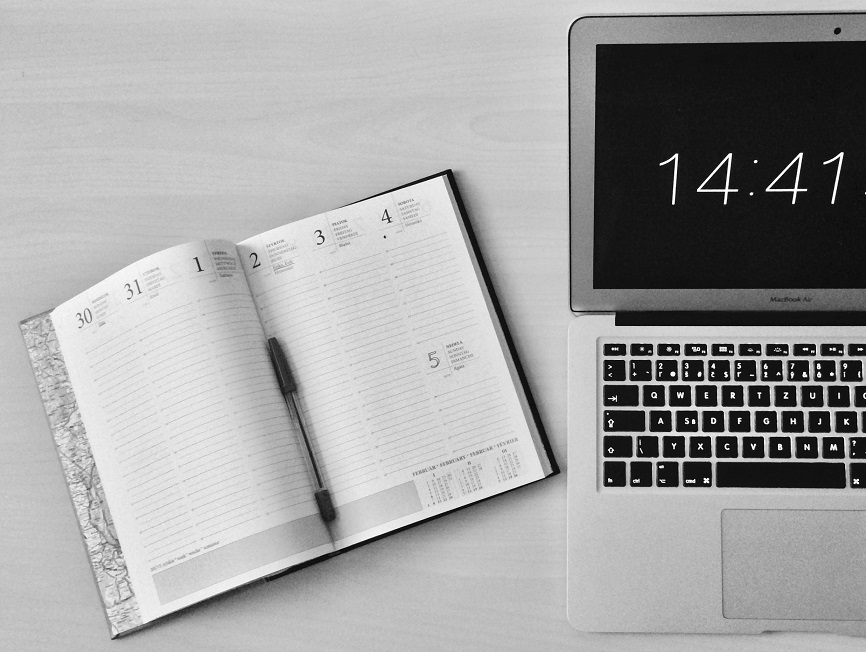Tagged Under:
Positive Mental Health Strategies
With proper planning and the right strategies, you will have a healthier outlook on life and be a better music educator.
The beginning of the school year is a good time for music educators to create a better routine for good mental health for themselves and their students.
Below, are several strategies that come from mental health research. While I am not a mental health specialist, many of the suggestions below come from professionals who have significant experience and research in the field of mental health. Much of what is presented below applies to high school and college musicians, but the concepts can be applied to other ages and professions.
Statistics
According to the National Alliance on Mental Illness (NAMI),
- 75% of lifetime cases of mental conditions begin by age 24.
- One in four young adults between 18 and 24 have a diagnosable mental illness.
- Students cited depression and anxiety among the top impediments for academic performance in 2011.
 Therapy/Counseling
Therapy/Counseling
Therapy is a great way to improve numerous aspects of both personal and professional life. Many schools and colleges offer free or significantly reduced rates for therapy/counseling. Historically, there has been a stigma associated with therapy, and it was only sought out by a narrow segment of the population. But now, going to therapy is not only accepted but encouraged.
Seeing a therapist on a regular basis helps people learn how to manage anxiety and set reasonable goals; it also helps them deal with situations when their brain turns small issues into big issues.
To locate the health services department at a school, simply type the name of the school along with “mental health counseling” into a search engine. One of the first results will most likely list where you can find the mental health center, its contact information and much more.
Goal Setting
People are easily overwhelmed when they are given a huge goal to accomplish over a long period of time, such as the typical senior recital in college. With goal setting, this large goal is chopped up into smaller, bite-sized chunks that are more easily attainable. When a person reaches a goal, even a tiny goal, he or she is more likely to continue onto the next goal with more energy and excitement. Here is an example of how to break down a large goal (40-minute senior recital) into smaller tasks:
- End Goal:40 minutes of music consisting of five pieces with three months (12 weeks) until the recital.
- Smaller (Biweekly) Goal:Learn one piece every two weeks; reserve the last two weeks for cleaning and “confidence runs.”
- Smaller (Weekly) Goal:Break each piece down into two one-week goals; first week to learn the solo, and the second week to get the solo worked up to tempo and cleaned.
- Smaller (Daily) Goal:The first solo is seven pages, so learn one page a day and review any material already learned.
- Smallest Goal:On the first day, devote two hours to practice the solo. The first page is divided into four small sections, so set a timer and learn one section every 30 minutes.
This breakdown of a recital into biweekly, weekly, daily and a two-hour practice session will focus your efforts to meet the larger end goal. Every solo takes different amounts of time to learn/perfect, and every individual learns at a different pace. You know yourself better than anyone. So when you are goal setting, consider as many factors as possible that pertain to you and your work habits to create a realistic timeline that will lead to a great, confident recital.
The same process can be applied to any task that involves deadlines. When people break down the tasks to meet a big deadline, they feel like they are getting things done and moving toward their goal by completing small tasks on a daily or weekly basis. This idea is similar to how marathon runners think of running one mile 26 times, rather than thinking about running all 26 miles once.
 Eat, Sleep and Exercise
Eat, Sleep and Exercise
Also known as the “Big Three,” eating healthy, getting enough sleep and exercising regularly have all been linked to improving people’s mental health.
I recommend meal prepping at night to create nutritious meals that are easily accessible, so that things like fast food can be avoided.
Consider using an alarm to tell you when to go to bed so you get a good night’s sleep. For example, iPhones have a “Bedtime Alarm,” which can be helpful if you lose track of time at night watching Netflix, playing on the computer or scrolling through social media.
Lastly, schedule exercise into your weekly calendar so that it is not overlooked as something to “fit in when possible.” Everyone is different — some people work out better at night, some prefer the mornings and others mid-day. Try different workout times until you find the one that works best for you.
Reduce/Eliminate Electronics Time
There are numerous articles and studies that say reducing or eliminating social media and other electronics (gaming, video apps/services, etc.) can improve your mental health. It’s difficult to do this because social media and other electronics are specifically designed to be addictive. Netflix’s chief executive, Reed Hastings, said, “… You know, think about it, when you watch a show from Netflix, and you get addicted to it, you stay up late at night. We’re competing with sleep, on the margin. And so, it’s a very large pool of time.”
Quitting or reducing time with electronics can help you get into a regular sleep routine. But it can also boost self-esteem. People use social media as a way to show off the highlights of their day, but they generally do not include the regular, boring and sometimes negative things in their lives. By looking as their social media accounts, you may have negative feelings of self-worth because your life does not seem as amazing as theirs with their new relationship, fancy car, professional achievements, new clothes, etc.
Reducing or eliminating the constant barrage of thousands of people’s singular highlights will help you keep a level head and improve your ability to know what is truly important instead of simply superficial.
Build Your Financial Health
Another major cause of mental anguish is money. With the rise of student debt, it is common for many young adults to feel overwhelmed by financial insecurity.
The best thing to do is to get started with a singular task. Just like preparing for your senior recital outlined above, you can easily get overwhelmed when you just focus on your debt. A common way to get a handle over your finances is to create a budget (income vs. expenses). After that, make smaller, manageable financial goals, such as building an emergency fund by saving $50 a month or eliminate debts one at a time. Then make longer-term financial plans like starting a retirement savings, buying a house or car, starting a family, etc.
There are many great resources about building your financial knowledge. You can start by reading my article “Financial Advice for Young Percussionists,” which was published in the May 2018 issue of Percussive Notes. You can also check out Dave Ramsey’s “Seven Baby Steps” or his “Financial Peace University” (a fee is required).
 Time Management
Time Management
One of the best ways to feel in control of your mental health is to be in control of your schedule. Use calendars (iCal, Google Calendars, paper calendars, etc.) to map out days, months, weeks and even years. Musicians are known to have complex schedules that can vary drastically from week to week, so having a schedule that is constantly updated will give you a sense of healthy control for your mental health.
A detailed calendar allows for planning of academic, professional and personal events. Scheduling times to eat, sleep, relax, hang with friends/family and other personal things will allow you to plan each day to be maximally productive without being overwhelming. Calendars are a great place to put practice times (with practice goals), study times (with study goals) and other things that are not fixed like classes, rehearsals, concerts and lessons.
Do not feel as if you are a slave to your calendar; instead, treat your calendar as a tool that helps you build a great day, every day. Try mixing up your practice and study times to find out what works best. Some people find they practice better at night, but as they grow older, they may prefer the morning. Remember, your calendar/schedule does not have to be the same from day to day.
Lastly, don’t forget to add mental health activities into your calendar, such as therapy, mindfulness practice, meditation, yoga, body scans, etc.
One Thing at a Time
The hardest thing about starting down the road of self-improvement is taking that first step. A lot of change in a short period of time can cause you to abandon the idea of change at all, even though you know it is for the best.
Try taking one thing — therapy, goal setting, time management, “the big three” or reducing/eliminating electronics — and start working on it one day at a time.
Creating a positive environment to improve mental health is a life-long process. There are always setbacks, so expect them, deal with them and learn from them because you will become stronger from these setbacks.
If things get too hard, schedule an appointment with a therapist, talk with a close friend or family member, or if it is a life-threatening emergency, contact the appropriate authority like 911, National Suicide Prevention Lifeline (800-273-8255) or Crisis Text Line (text “CONNECT to 741741).
Everyone needs help from time to time, so make sure to watch out for fellow musicians, music educators and your students by being observant and available to help, even if it is just to listen.
This article originally appeared in Percussive Notes, Percussive Arts Society, Volume 58, Issue 1, pp. 47-49.















